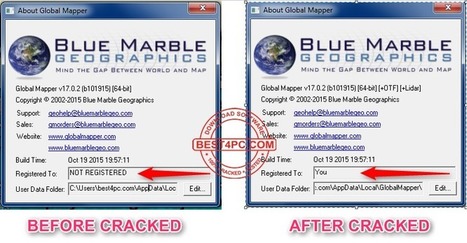
Chat Mapper Keygen
May 21, 2010 In this video, 'Z' from UBS shows you how to create and simulate a simple conversation using Chat Mapper. You can watch part 2. Oct 25, 2017 - Sports Chat Place posts and supporting documents are owned, held, or licensed by the the Sports Chat Place LLC, and are available for free.
 You can use Urban Brain Studios' Chat Mapper and the Dialogue System's to create a. Chat Mapper Project Details Your Chat Mapper Project should contain these settings: Custom Asset Fields - Items Title Type Description Is Item Boolean Specifies whether the item is an item or a quest If you're using the, also add the quest fields listed in the section. If you plan to use quest entries (subtasks), you can read more about how to add fields for them in the section. Custom Asset Fields - Dialogue Nodes Title Type Description Sequence Text Cutscene sequence to run during the node Response Menu Sequence Text (Optional) Cutscene sequence to run during the response menu that follows the node To set up, also add localized fields as described in the section. The Chat Mapper simulator will only recognize localization of the Dialogue Text field, but any other localized fields, such as Menu Text, will be handled properly in the Dialogue System.
You can use Urban Brain Studios' Chat Mapper and the Dialogue System's to create a. Chat Mapper Project Details Your Chat Mapper Project should contain these settings: Custom Asset Fields - Items Title Type Description Is Item Boolean Specifies whether the item is an item or a quest If you're using the, also add the quest fields listed in the section. If you plan to use quest entries (subtasks), you can read more about how to add fields for them in the section. Custom Asset Fields - Dialogue Nodes Title Type Description Sequence Text Cutscene sequence to run during the node Response Menu Sequence Text (Optional) Cutscene sequence to run during the response menu that follows the node To set up, also add localized fields as described in the section. The Chat Mapper simulator will only recognize localization of the Dialogue Text field, but any other localized fields, such as Menu Text, will be handled properly in the Dialogue System.
Global Lua Script If you're using the, add this to the Global Lua Script: Quest = Item; This Lua statement makes Quest[] an alias for the Item[] table. In your Conditions and Script fields, you can refer to Quest['questName'] instead of Item['questName'].
Chat Mapper Project Template The Dialogue System provides a blank template Prefabs/Chat Mapper Template/Template.cmp that already contains these settings. You can make a copy of this template and use it as your project file, or copy it to your [Documents] /Chat Mapper/Templates folder to make it available as a template choice in Chat Mapper. The template is based on the Chat Mapper 'Games' template. Several fields from the Chat Mapper 'Games' template are still present but excluded from export to reduce the size of your asset files. You can review these fields and change which ones are exported by selecting Project > Project Settings in Chat Mapper. Notes about Content Review these helpful tips before editing your Chat Mapper Project: • Asset names (actors, items, locations, variables) and conversation titles must be unique. If you define two actors with the same name, only one will be loaded at runtime.
If a conversation references the other (not-loaded) actor with the same name, the results may be unpredictable. • The Dialogue System will try to match the characters' GameObject names with their actor names. It's simplest to keep these the same. If not, you can use an component in Unity. • If you use actor pictures, store them in your Assets folder hierarchy so Unity will be able to access them. • If you're using the, define your quests as items as described above.
You're otherwise free to store whatever information you want in items. • In Chat Mapper and the Dialogue System, space characters and hyphens get replaced with underscores in Lua table indices. This is described in more detail in the section. For example, My Quest becomes My_Quest when referencing the Item[] table. For example: • Item['My_Quest'].State = 'active' • The Dialogue System doesn't use locations for anything specific.
You can store whatever information you want in them. • The Dialogue System will create the following user variables if they don't exist: Variable Type Description Alert Text You can assign text to this variable. At the end of the conversation, the dialogue UI will display that text. You can use this to give the player information.

For example, to let the player know that they just acquired a new quest, add a Script such as Variable['Alert'] = 'New Quest: Kill 5 Rats' Actor Text The name of the current actor. In the Dialogue System, you can configure a conversation to trigger for any character, not just the character defined in your Chat Mapper Project.